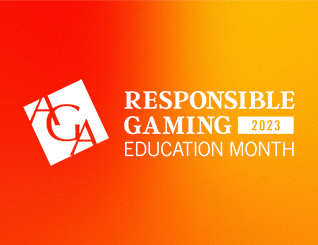The Council on Compulsive Gambling of New Jersey (CCGNJ) is sounding an alarm for responsible gambling (RG) awareness with the start of September’s observance of Responsible Gaming Education Month (RGEM). RGEM, which is sponsored by the American Gaming Association (AGA), educates gambling industry personnel as well as bettors about RG and the indicators of problem gambling. The growing need for RG education has reached a critical point as problem gambling becomes more widespread due to online gambling access and the volume and content of gambling ads.
New Jersey has a greater need for RG initiatives than most states: the National Council on Problem Gambling ranks the state as having the sixth highest incidence of gambling addiction. Research by Rutgers University finds problem gambling in New Jersey to be markedly higher than the national average (6.3 percent compared to 1-2 percent). Further evidence is found in the CCGNJ’s 800-GAMBLER Helpline seeing a 28 percent spike in intake calls between 2022 and 2023.
During the month-long RGEM observance, the AGA has several areas of focus: empowering patrons to play responsibly, educating industry staff to ensure customers are gambling responsibly, and research related to gambling. Technology, specifically algorithms, has a growing role in addressing the issue of gambling by using them to assess when a player may be drifting toward problem gambling behavior. Until recently, gambling companies used algorithms strictly to identify patrons’ betting behavior on which they could further capitalize.
Gambling advertising has proliferated tremendously, and much of it contains misleading language. Gambling ads include enticing offers and deliver a “you can’t lose” message with repetition and frequency, encouraging people to gamble.
The CCGNJ calls for stark messaging about the potential harm problem gambling causes to individuals and families. Even more troubling than the risk of losing one’s savings and home is the number of disordered gamblers with suicidal ideation: One in five disordered gamblers contemplate suicide, the highest rate among all addictions. To spread awareness about the harmful aspects of gambling, CCGNJ advocates for public service announcements (PSAs) to alert the public to gambling’s risks and warning labels akin to the Surgeon General’s warning on tobacco products to be posted on all online and brick-and-mortar gambling sites.
The New Jersey Division of Gaming Enforcement responded to New Jersey’s pro-gambling culture by introducing new measures to facilitate self-exclusion and by naming the state’s first Responsible Gambling Coordinator, Jamie McKelvey.



